Caillois and Rosewater
This is about Magic: The Gathering, but it’s not.
It’s about Academic reading, but it’s not.
In Roger Caillois’ book Man, Play and Games, he describes a bunch of concepts that make a case for how games are important, what they do, what they mean for culture, all that good stuff that we can use in game studies. In this, he laid out his notion of both a sliding scale between two points for the way games work then he describes four types of ways players engage with games.
Mark Rosewater, the head designer for Magic: The Gathering, has talked about types of players and who they design cards for in terms of a sliding scale between two points for the things that appeal to players, and then describes three types of ways players engage with the game.

The sliding scale in Caillois’ work is between ludic games and paidic games. Ludic games are about clearly defined rules. The more tightly defined rules are, the more likely it’s ludic. Chess is very ludic, for example. Paidic games are about freedom of play, the capacity to create rules or subsystems or discard rules as you play. Improv games, for example, are very paidic.
In Rosewater’s work, he describes the idea of players caring about the feel and lore of the cards they play with (an idea first positioned by Matt Cavotta), and the players who care intensely about the rules of the game state and don’t care about that creative space. These are described as Vorthos and Melvin.
In Caillois’ model, his four types describe games in terms of them having attributes that give people reason to play:
- agon, games of competition
- alea, games of chance
- ilinx, games of vertigo
- mimicry, games of impersonation

Rosewater’s model describes three types of players, and why they play:
- Timmy/Tammy, who wants to feel something
- Johnny/Janey, who wants to express something
- Spike, who wants to achieve something
Now, these don’t directly map onto one another; it’s hard to see how ilinx connects to the Tammy/Janey/Spike model. I personally feel that it works well as Janey’s thing, where flipping a card and rolling a dice and seeing what your opponent can do about it is a feeling of being disconnected and helpless that you can enjoy. But that’s fine, it’s a narrow tip to a broader pen.
Also, Janet Murray in Hamlet on the Holodeck points out there’s a fifth type of play that Caillois doesn’t consider – the player who plays to enjoy the idea of the rules interacting. That rules that nest and set against one another in a satisfying way offer enough of a reason to play.
I’ve asked the crew at Wizards if Caillois informed their vision of the psychographics, and as of this writing I haven’t received an answer. Informed by their history, I think they devised their player psychographics independently, and the Rosewater model is missing some basic components.
These are two very good ways to look at game design; they both fundamentally want to focus on why someone plays, with Caillois framing it in terms of big, cultural ideas and Rosewater framing it as the choices of an individual’s feelings. Caillois (and Murray) take into account another two different ways to play, two more ways you can make games and things you can implement in games that people engage with.
One of the reasons we look at Caillois’ model is because, well, he was a French academic, and he wrote about a topic, and other people wrote about it subsequently. At the same time, though, Caillois’ ideas include a lot of super gross colonialism. His whole vision of cultures that aren’t western European talks about them condescendingly, the notion that their destiny was to be conquered or colonised, because of the games they play. The Rosewater model, on the other hand, is a living games text, expressed not in an academic book written by one person, but algorithmically sorted by a game that’s been non-stop produced for twenty-five years.
It’s not that the Rosewater model is better, I just feel it’s a bit easier to share. I don’t need to assign it one or more Yikes.
Is this some bold position, ‘we should use Rosewater instead of Caillois’? Nah. Is it some brilliant academic insight, ‘MTG R&D bites on Caillois’? God no.
It is still interesting.
Continue Reading →The Tail of Spite
Back in 2018, Dinesh Vatvani, a python programmer, took a set of analytic tools to the BoardgameGeek top 100. I have said some mean things about BoardgameGeek in the past, like how it’s a site that ‘loves lists as much as it hates women’ or ‘looks like an android’s uterus’ or ‘has a community that are shockingly comfortable with being the worst kind of racists,’ but one thing it’s generally regarded as being pretty solid at is presenting to a general audience a lot of data about whether or not a game might be, in some vague way, ‘good.’ It’s got a ranking system, you see, and that ranking system – well, it’s a system. Systems are right, aren’t they? It’s like algorithms.
The hypothetical idea is that BoardgameGeek, by aggregating a large number of opinions, this analysis avoids having a ‘bias’ and is instead presenting a kind of objective data.
Now, obviously, this kind of analysis is going to be as biased as any self-selecting group, and Dinesh’s analysis seeks to tease out a number of different factors. The full article is definitely worth a read, but in this, he introduces something extremely interesting, which he dubs the Tail of Spite.

The Tail of Spite is the way that:
A curious feature of the graph above is the tail of games of low complexity and low ratings at the bottom left of the plot. This “tail of spite” consists of relatively old mass-appeal games. Every single game in the tail of spite was released pre-1980, with many being considerably older than that. The games that form the tail of spite are shown in the table below:
What fascinates me about this tail of spite is that these are games that, with some degree of objectivity, seem to be successful. Some of them aren’t even exploitative like Monopoly – I mean who owns Tic Tac Toe? Who’s getting rich off kids knowing how to make that game on their notepaper. No, these games are games with wide-spread mainstream appeal, that do their jobs, are largely not broken and rarely poorly produced, but they’re extremely well known. They are not so much rated as they are resented.
I think this idea, that of a ‘tail of spite’ is a useful one to have. Your biases won’t just express in over-rating the things you like – you will also be inclined towards being more harsh on things you have personal distaste for.
Anyway, Monopoly sucks.
TvTropes Critique
As my month-long meditation on Voltron: Legendary Defenders slowly unspools, I’m reflecting on the kind of criticism that spurred me to write about it in the first place. It was all of a particular genre, a check-list and key-word driven style of critical engagement that I have long since had a beef with. I’ve taken to referring to it as TVtropes Critique.
I Like: Game Study Study Buddies
I travel around a lot, and that means a lot of my time I can’t read. Bus trips of 40-80 minutes are extremely difficult times because I have to conserve battery power on my phone while trying to not waste that time. If I had physical copies of books it might be a bit easier, but I don’t for most of them.
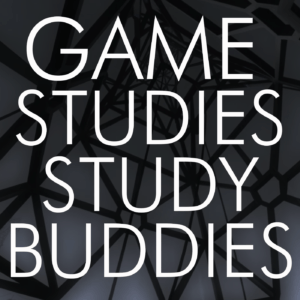
Enter Game Study Study Buddies, by Cameron Kunzelman and Michael Lutz. This podcast is a long-form treatment of academic game study books, and when I’m travelling it’s one of the things I can do that feels meaningfully productive for both easing me into a text or reconsidering one. They only do an episode a month, which is a bummer but it’s really interesting stuff if you’re interested in academic consideration of game studies.
The books they focus on are definitely biased towards videogame culture, except when they go back and do the Grand Olde Texts like Man, Play, Games. But that’s okay, because that’s what most of the people around me are interested in.
I like this podcast and I even sponsor it on Patreon. You might like it and want to check it out just for interest’s sake.
Caillois Indifference
If you’ve been paying much attention to my talk lately, you’ll know I’ve been reading a book called Man, Play and Games by a 20th century sociology academic called Roger Cailliois, where none of that is pronounced the way I thought it was. There’s one thing about this book, though, that isn’t really academically profound but I find funny and interesting.
See, it’s a translation from French to English, and the translation is trying to make sure it uses both consistant wording and academic language. That means that there’s very little vernacular, and we get such wonderful phrases as:
… [Ilinx] inflicts a kind of voluptuous panic upon an otherwise lucid mind.
On the Game Study Study Buddies podcast, Michael Lutz pointed out that this kind of talk is a bit like a Metal Gear Solid villain. I tried that out:
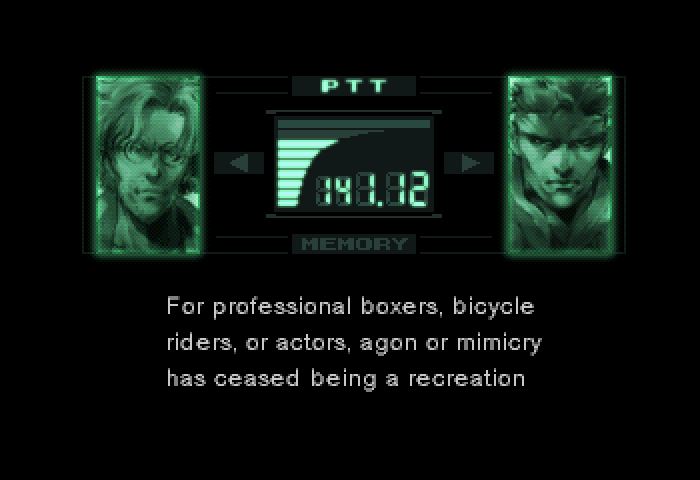


Me, I thought about this. See, my feeling was that the takes read a lot more like something from Neon Genesis Evangelion:
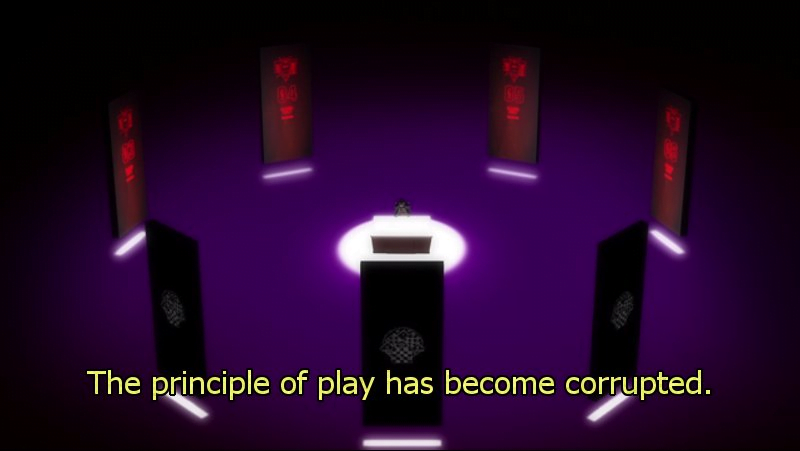
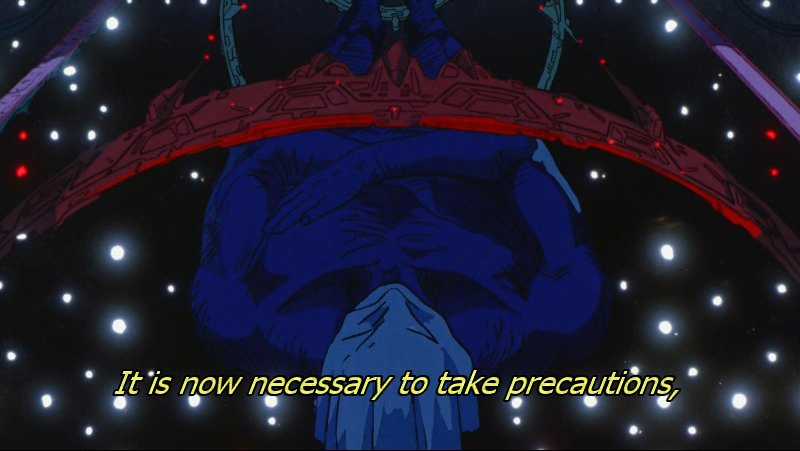
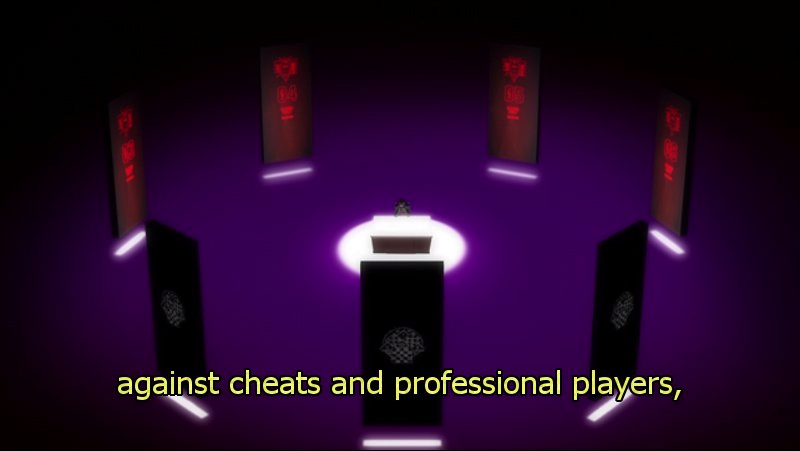

But then, as I read onwards, I saw a phrase that stood out, a phrase that demanded its place in a different game.


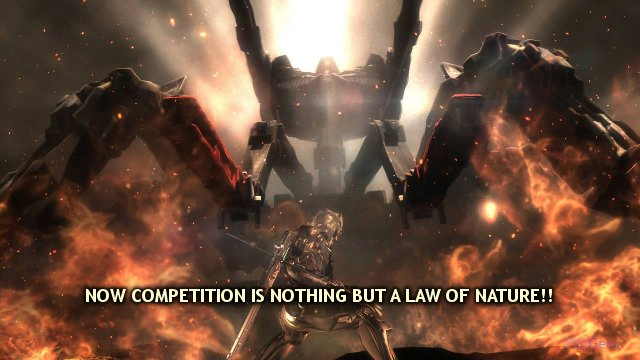 It’s not a bad book, except in the ways it’s bad.
It’s not a bad book, except in the ways it’s bad.
But it’s funny when it’s recontextualised.
Decemberween: My PhD Supervisor
This PhD scares the hell out of me.
It’s not a rational fear, by the way. From what I can tell the biggest part of the PhD is doing a lot of cataloguing so I can put my – fairly interesting but not groundbreaking – idea into a greater historical context. What I’m doing, the reason I want to be doing it, that’s clear to me – I want academia to be able to talk about games better, in terms of them as media objects, as things that let people see the world, heal themselves, understand complex problems, and solve bigger problems.
PhDs are not a small amount of work. I’m okay with the work.
What scares me about it is the idea that any minute now someone, anyone, will turn to me and say “Okay, but who do you think you’re fooling?” and I’m back in an ACE school where there’s a right answer and I picked the wrong one. This has never happened. It never will happen. It’s a persistent fear nonetheless.
But my supervisor recognises this messed up part of my head, and is kind enough to keep reminding me that I don’t need to think this way. Pushing me to build not just what I’m working on, but the tools and habits that are going to make me better at building it. Recognising very real things – like my grandmother dying and the importance of marking – while still driving me to expanding and improving where I’m weak.
It’s something that’s really helped on this incredibly weird journey.
I really appreciate it and I just wanted to say it’s very nice to have the feeling someone is in my corner. And I don’t want to let them down.
Ethical Jealousy Of Others’ Happiness
Anonymous Asked: How do I deal with jealousy regarding other people’s happiness? It always feels like everyone around me is happier, more alive, and generally *living* better than I do. I know being the bitter Old Man staring between the blinds at the happy kids on the street isn’t good for me or anyone, but I can’t shake these feelings off.
Marshall Rosenberg expressed once, “At the core of all anger is a need that is not being fulfilled.” I don’t recommend Rosenberg for all your life, but he’s got a good handle on a theory of how a lot of toxic masculinity disconnects us from our feelings. And I mean, look at the guy:

Admitting You’re Wrong And Queerness
Whoop, talking about people being jerks to queer people, here’s an escape link and a fold.
Continue Reading →Comstock
Geanette, To Weebs
I’ve talked about Gerard Geanette, a French academic, who published books in the 1990s about a vision of media that we call structuralism. His idea was that you can divide media into different parts that all make up the experience, and the ways it change from person to person is a matter of changing parts of the structure while not necessarily changing parts of the text.
Also, Geanette? Looooved him some books.
Hackademia!
This is a term I heard for the first time today, and I was really lucky I heard it being said by someone I like and respect or I fear there’d have been a row. There’s this ugly impulse to hack- prefix everything, in the same way that Rush Limbaugh once coined ‘slacktivist’ and now a bunch of well-intentioned millenial dorks he was making fun of think that they’re addressing a real thing.
The notion was introduced to me by Olly Thorn, from PhilosophyTube, where he forwards the pretty simple thesis that in response to an increase in UK tuition fees, he’s putting his degree on Youtube, for free. This is a revolutionary feeling, but don’t get it too twisted – a university isn’t just here to tell you things. If that was the case, a library would do the same job, and if that was all a library did, you could get the same thing from a few specific old books. There’s a lot more to university than just the reading material!
Still it put me in mind of the question, what am I doing here? What am I trying to do here?
I don’t think I’m giving you, the reader, a University education. I’m not short-circuiting the very nature of all things educational. But what I do think I’m doing, what I’m trying to do, is provide a connection between academia and the media stuff I care about. Because I like game books and I like board games and I like the little failed CCGs and the board games we all made with paper and pen and didn’t get off the ground. I don’t think those things are beneath consideration, and I also don’t think academia is without value, which is a pair of propositions that sometimes feels a bit weird.
In videogames, there’s this sort of noisome harrumphing about how there isn’t a meaningful discourse about games, and there are some websites doing that, but my experiences writing for websites trying to offer same just pushed me back towards the same ingredients-list game conversation, and the websites doing This Kind Of Thing don’t seem to be answering my (admittedly rare) calls.
What that means is this blog is sort of one part writing praxis – that is to say, me taking my theories about creativity and human interface, and acting on them – and one part making a thing I want to see in the world. The features may rotate in and out – I mean, the Magic: The Gathering articles are getting a bit afield from the original idea of just ‘whatever deck I’m playing this week’ – but the general premise remains.
I want my blog to be a place to you can look to for advice on creating things, but also for my degree, digital media studies, brought to bear on stuff you care about in a way you understand. I want to use my tools to entertain and engage and encourage.
Does that make me a hackademic? I dunno. Maybe. It sounds like a cool title and maybe that’s a bit cooler than I deserve. But I know I’m doing this in an effort to interest and engage you. If I’m not appealing to an audience, I’m not doing what I want.
Failing (Early, Often, Paradoxically)
I normally sit down to write something for this blog after I’ve gotten my day’s PhD work done. Today, that work was almost entirely smothered under work for marking, because marking is important, and when I do try and write without some burning need already in place, I tend to survey three things:
- My incoming directory
- My twitter feed
- My bullet journal
Today, all three of those things are blank, because my day has gone away in a cloud of trying to mark a lot of students’ work in a timely, respectful fashion while still organising all the normal operations of the day like feeding and walking the dog. It’s been a rough one, and that means I haven’t actually done one of the things I’m finding I enjoy, and that’s readings.
One of the books I just finished reading is Jesper Juul’s the Art of Failure, which I’m sure I’ve mentioned elsewhere in the blog by this time. It’s a really neat book, pretty short and breezy and doesn’t require a lot of specialised knowledge. Juul is pretty good at that. You could probably knock it over in an afternoon if you weren’t taking notes on everything.
In it, Juul talks about the paradox of games. He suggests that games are things we fail at, usually, and we don’t seek out failure, but we do seek out games, despite the fact we’ll fail at them. By contrast, the students I’m dealing with are examining the design side of things with the principle of fail early, fail often.
I see the word ‘fail’ a lot.
Juul’s position is interesting, as I sit up late and muse on it, because it presents a very binary view not just of human experience, but of human consciousness. That is, that humans are a single perspective agent, which has singular motivations and good, clean judgment. Some parts of us don’t believe we’ll fail. Some parts of us want to fail, to get falsifiable information. Some parts of us want to fail because we’re curious. Some parts of us are constantly redefining failure as we play.
This isn’t really addressing Juul. It’s more musing on what the book doesn’t do.
And not doing something is not the same thing as failing.
Just like how today, I didn’t read any books for my PhD. That doesn’t mean I failed my PhD today. I hope.
Koans as Games
Kōan are a type of Zen story or riddle designed to make a practictioner reconsider their knowledge of Zen, or demonstrate their existing grasp of the study. They range in complexity and length, from some classic phrases like If you see the Buddha, kill him and What is the sound of one hand clapping, but they get positively enormous by comparison, becoming like little stories with multiple parts that all combine together to form their own conflicts.
The thing is, and you could probably see this coming from me, the boy who cried game, but I think that zen koan might be a wonderful example of what I think of as a zero-materiality game.
My thesis is building around the idea I established in my honours thesis, the idea that you can look at games on three non-related axes; their confrontation, their abstraction and their materiality. Now it’s easy to find games with lots of materiality, like big elaborate escape rooms that need you to pay attention to the entire room, and it’s sometimes easy to point between two similar games as to which introduces more material elements (D&D versus Magic: The Gathering, for example).
One thing I’m interested in is when you take any of these elements to an extreme; what does a game with no abstraction look like? What does a game with as much abstraction as we can conceive of look like? As confrontation models change, you move away from direct confrontation to races to competition for resources to simultaneous play to cooperation and so on, but materiality… materiality has interesting extremes. I used to think that how to host a murder was a good example of low materiality, but even those are designed to be played in a space with other people and the ability to position yourself in relationship to other people, and the room, and so on, all play into how that game plays. Also sometimes there are props. Anyway the point is, as I tried to erode the idea of materiality more and more, I came upon kōan.
A practitioner might not think of kōan as games, but I’m not one to tell them how to Buddhism and they don’t to tell me how to games. The kōan is a sort of almost unsolvable puzzle that is meant to imply by its engagement that it will unlock or enlighten you, or there is a way to view it that will make the rest of it make sense, and as you come to understand kōan – not solve – doing so will make other kōan make more sense, and then you can return to older kōan with newer knowledge and suddenly they’ll make sense in a different way, but you still reached this higher level of understanding after understanding them in a different way like some kind of conceptual-spiritual scaffolding. The whole process is a form of play – and indeed, that the mind keeps returning to the kōan is a sign of how engaging they can be.
The kōan is a puzzle, which requires no material mass, but does require you to engage with it. And in so doing, you are given a way and a place to play, and their interrelationships transform one another.
Also, in amongst these, I wanted to provide a link to Ted’s favourite kōan, the wild fox kōan.
Christopher Hitchens Was Just Good At Being A Dick
Christopher Hitchens was a journalist and writer and also wealthy middle-class son of working class parents, who was renowned in his early days for bombastic iconoclasm, and in his later years for a sort of later-life renovation in the name of the New Atheism movement. He was renowned for the latter stage of his life, up until his death, for his part as one of the ‘four horsemen,’ a group of prominent intellectuals who openly and aggressively challenged Christian Hegemony in the culture.
Now those horsemen include were four dudes: Dan Dennett, a philosopher who’s done some interesting ad valuable stuff, but also some really racist stuff seemingly without realising it, Richard Dawkins, probably the most scientifically important modern racist grandpa, Sam Harris, who’s spent the intervening years showing what a racist doofus he is – Wow, there’s a lot of racism going free. Don’t worry, Harris is also clueless about philosophy, humanities, art and ethics, a real renaissance doofus.
Anyway, the point is, you had four guys who had varying degrees of intellectual importance and accomplishment, and one of them was Hitchens, a man who has kind of become an idealised icon of That Kind Of Atheist On The Internet.

My relationship to Hitchens as a historical entity is a bit complicated. Because some of his work was very robust, very competent – his reporting on places like Belfast and Beiruit, for example – and he was good at economising with words, he definitely seemed good. There were issues where Hitchens and I definitely agreed – he was genuinely adamant about the Elgin Marbles, for example. Yet at the same time, he didn’t bring any illumination to any of the issues he examined as a journalist that other journalists couldn’t do. The dude wrote about experiences very well, but the filter of his experiencse was overwhelmingly himself, and you learned of him through that work.
And really, the thing that Hitchens did well, did best, was be mean to someone.
It’s part of why he’s such an affecting performer. He’d turn up at Creationist Debate events, and make the creationist in question look like a stupid dick, and he’d tell fascists to get lost, and he’d do it well, but when you cook down his positions, most of his most intelligent insights were quotes. Most of his best interpretations are of very obvious, basic ideas – England does not own Greece’s history and it was bad to destroy the Bamiyan Buddhas. These aren’t actually challenging paths, these aren’t things that require the work of excelling journalism to put into meaningful context.
What Hitchens did well, and what made him feel so bad to watch when he turned that skill towards people who a moral conscience or broader context could appreciate did not deserve it, was be mean to people.
And that’s why we loved him, in the New Atheist community. We liked him, because he was mean to the people we wanted to be mean to and he was better at it than we were.
It’s sad in hindsight. Because it means Hitchens is hard to appreciate for his excellent ability to wield words, when you realise that often behind that skill there was not an excellent and incisive mind, but an emotionally satisfying cruelty.
A good journalist would consider the value of public debates on articles of faith. Would notice the way that it wasn’t valuable to negotiate with unreasoning conspiracy. Would appreciate what he couldn’t argue people out of when they’d never argued themselves into it.
But he didn’t.
He was just mean.
Real good at it, too.
Phd Organisation Update
Okay, so!
I’m doing scholarly work. Academic work. Well, I’m working on doing that kind of work, I don’t know how good a job I’m doing. One thing I was doing was putting notes from that work here, on my blog. I still believe that it’s important to be able to explain my ideas in my natural voice, and don’t worry – I’m still going to be producing stuff, on this blog, with that same perspective. If it’s a matter of writing about (say) a videogame referring to the Jesper Juul book I read recently, that’ll happen. If it’s my specific notes about that book for my PhD? That goes on, dun dun dun, the other blog.
That other blog, by the way, is one I’m deliberately obscuring access to. That’s partly out of general information security and student safety. That blog has references to my government name on it, a name I really don’t like. I want that blog to be useful as a resource for students following me, I want it to be useful show to my supervisors of the kind of work I’m doing regularly. It is, essentially, a workplace resource.
I don’t think that this should lead to the diminishment of workload here. But it might mean that some articles you went to find here have been moved – just to make sure that searching for their text will take you to the right spot. In those places I might put, I dunno, a picture of a cute dog.
There’s another pragmatic issue here. Those posts of my notes were usually a pretty good way for me to make my day’s PhD work and my blog goal (a post or more every day) line up. But they’re not good content for this blog, they’re not the kind of things that interest readers, and I think you’d rather see me apply the things I’ve read to things, rather than just demonstrate that I’ve read things.
MOVED POST 7
This post was deemed important to my PhD and has been moved to my academic blog. If you don’t know where that is, that’s okay! Or you can contact me to ask me where to find it.
Otherwise, don’t worry about it.
MOVED POST 6
This post was deemed important to my PhD and has been moved to my academic blog. If you don’t know where that is, that’s okay! Or you can contact me to ask me where to find it.
Otherwise, don’t worry about it.
PC Format And Pinball
Back before the internet, if your computer didn’t work, you didn’t have the same options we do today. If you wanted to work out why a game wasn’t loading or why it was slow, you’d often be left with no recourse but to ask someone, someone who was either a technician or, more often than you’d think, you’d mail into a magazine, like, mail in with an actual letter and hope they’d understand your question, try to answer it, and print it in their column.
These things existed, they were like agony aunt columns but the solution was almost always something to do with including -RAM or -NOEMS in your config.sys file.
In Doc Destructo’s Gamewrecks episode on Tattoo Assassin, he mentioned the differences between pinball machines and arcade cabinets, and it reminded me of the story from my youth from one of these tech support columns.
See, one bloke had written in about his attempts to install a new graphics card, he found that it didn’t fit the place he thought it should in his computer. No problem, he said, as he was experienced with computer hardware from his job managing pinball machines in an arcade. He said he’d found the part that connected to the main board, and, using some of his work tools, made sure the pins fit.
Anyone who has worked on the insides of a PC is, I hope, cringing as hard as I did.
The tech support column was surprisingly nice to the guy, explaining to him that maybe he didn’t quite understand how fragile a PC was compared to the more ‘sturdy’ arcade machines he was used to working with. I think it’s from there that the word ‘sturdy’ got emblazoned in my mind as the defining trait of a piece of hardware that was meant to survive being dropped downstairs once in its life.
They told him to buy a new one and maybe get a tech professional to install it for him.
What’s Autoethnography?
Hey, let’s start with an extremely difficult thing to define and unpack it a little.
Autoethnography is a method for qualitative research that focuses on academically exploring the personal experiences and autobiographical records of the researcher.
Okay, now to unpack that a little more. Qualitative research is research that focuses on examining things that cannot be easily or readily reduced into hard values — that’s quantitative research. So qualitative research is about, well, qualities. Qualitative research is very much about asking people questions, divining their experiences, taking them seriously and observing connections and patterns.
You might be familiar with surveys that ask you to rank things in order; that’s quantitative. Surveys that ask you your opinions or feelings, those are qualitative. Qualitative research is generally harder and slower and tends to need a human interpreter, rather than responding to mathematical tools.
Second academically exploring things is to look at things not as an expression but rather as a piece of text that can be related to with other academic tools. It’s bringing to bear analysis tools reserved for examining texts to bear on the the account of the experience.
Personal experience, I hope is pretty self explanatory. Autobiographical records are the things you, yourself, record about what you experience. This is normally seen as pretty shifty in academic research – after all, if you can get an objective measure of something, best to do that, rather than write down what happened to you.
With that breakdown in mind, what’s a way to explain autoethnography simply?
The first way is: There is no clear answer right now. It’s a complicated thing and it means a lot of things.
The second way, the pragmatic way, is that autoethnography is the process of experiencing something; writing about your experience; then interrogating what you wrote –not what you experienced – as an academic text.
Or shorter: You write, then you examine what you write.
Why do we use it? A couple of reasons. One it’s really hard to write about some things with quantitative research. Psychology, psychotherapy, art participation, sociological experiments, and on-the-spot historical accounts are all pretty hard to account. It’s useful for some situations where other forms of research would need larger examinations or complicated data gathering, and you don’t have a lot of time, like the immediate aftermath of an event. It’s also really useful for recognising processes that don’t standardise well, like following an artist or a composer’s work.
It’s not a perfect method at all – it’s got a lot of boundary problems, and if your autoethographic work moves near things that you can quantitatively research, and then don’t, you run the risk of leaving something untethered from more readily provable facts. It’s but one tool in the toolbox.
It’s also a handy practice to know of. If you’re prone to writing about your experience, you can go back and re-examine that writing as if it were academic text. I guess that always comes back to my personal position of take the things people do seriously.
MOVED POST 5
This post was deemed important to my PhD and has been moved to my academic blog. If you don’t know where that is, that’s okay! Or you can contact me to ask me where to find it.
Otherwise, don’t worry about it.
MOVED POST 4
This post was deemed important to my PhD and has been moved to my academic blog. If you don’t know where that is, that’s okay! Or you can contact me to ask me where to find it.
Otherwise, don’t worry about it.
How Unrepresentative Can The US Voting System Be?
What is the optimally “unfair” possible U.S. election? Assuming you can just set the vote ratios in each state to whatever unrealistic value you want. How much can you lose popular vote by and win the Presidency?
This isn’t a comprehensive view of this idea, but a rough summary. Still, it’s an interesting question and let’s explore it. Note that these results involve literally no breaking rules. These are just the ways the system functions based on changes in circumstances. Consider these urine samples from an extremely unwell system.
Who Wants To Date An Adventurer?
At the tail end of April, first day of May, depending on where you stand around the international date line, I put out some Twitter polls that asked how smoochable people thought the various races of Dungeons and Dragons were.
Are you curious about the outcome?
Continue Reading →MOVED POST 3
This post was deemed important to my PhD and has been moved to my academic blog. If you don’t know where that is, that’s okay! Or you can contact me to ask me where to find it.
Otherwise, don’t worry about it.
The Winged Hussars
Do you know much about Poland?
Do you know about its super-army of furries?
The Whole Sort Of General Mish Mosh Of Confrontation
If you haven’t worked it out, since I read every day, and I don’t want this blog to just be a nonstop festival of Hey, Here’s Today’s Academic Boring Stuff, I’m doing some of these out of order.
More reading from Tracy Fullerton’s Game Design Workshop. In this case, this is super useful because it gives me an academic source for just a very simple list, a starting place, for my thesis argument of the idea of confrontation.
MOVED POST 2
This post was deemed important to my PhD and has been moved to my academic blog. If you don’t know where that is, that’s okay! Or you can contact me to ask me where to find it.
Otherwise, don’t worry about it.
Virtually Virtually
With this talk of Virtual Reality going on, ever sit to wonder what virtual means?
What do you mean when you say something is virtually done?
It’s a weird word, isn’t it? It has some connection to the word virtuous, perhaps, and we use it so freely to describe digital spaces that it has a sort of connotation of the internet, or videogames, or something like that, but that’s not really what it means. When we describe reality, we mean pretty much reality. What makes that really interesting is that for a lot of intangible things in our virtual spaces, they are already virtual reality.
Brendan Keogh wrote about this, in that thesis I’m grinding my way through.In that, he outlines the question of virtuality as it pertains to things that are secretly trying to obscure their connection to the real world, that they are virtually real, and we are prone to pretending they are not. There’s no reason in particular we do this. We don’t file Warcraft goals as more important than Solitaire goals and yet less important than local sports team goals, even though one of those three is much more complex and within our control to influence.
When we say a task is virtually done, we mean that it might as well be done. When we say a thing is virtually real, we mean the same thing. It is real, or might as well be.
This comes back to my idea, the idea I can’t stop circling. We need to take games seriously, because they matter to people.
The Semiotic Threesome
Is it weird to call a PhD thesis’ language erotically charged?
In A Play of Bodies: A Phenomenology Of Videogames, Brendan Keogh, author of Killing is Harmless: A Critical Reading of Spec Ops: The Line, Australian games academic and probably someone I’m going to have to call ‘sir’ at some point going forwards, writes about the challenges of videogame texts. In the thesis, he forwards that videogames are a unique medium where there’s a challenge in divining a text, and that we have to re-examine what a text means and –
Look.
There’s good stuff there.
But, during this writing, he says (quoting Aarsith, describing Ergodicity), the semiotic threesome. The model of semiotics we normally use is one of encoding and decoding; the creator makes the text (encoding), the consumer experiences it (decoding). But that term, that turn of phrase, the idea of the semiotic threesome, where we consider an encoder, and their experience, the decoder and their experience, and the text itself as a trio of entities.
It’s romantic, in a way. It’s something I quite like to imagine – the encoder glimpsing the edges of the decoder, through the text. The text, curling and sinuous between all, entwining them, a thread that transforms and mutates and becomes its own thing. And it in a strange way, means that there is a time, a moment, when the art, the artist, and the audience are all together, in the moment when the audience enjoys the work, and considers what it might mean to mean.
It’s quite sweet.
MOVED POST 1
This post was deemed important to my PhD and has been moved to my academic blog. If you don’t know where that is, that’s okay! Or you can contact me to ask me where to find it.
Otherwise, don’t worry about it.
Sharing
One of the weird things about growing up in fundamentalist church with a deliberately stifled education is that some concepts kinda just get thrown around and you never really learn what they are. This meant I had to teach myself a bunch of this stuff, and I realise, there are some people similarly uncertain as to where the heck the idea of Shares come from.
The basic idea of what a share is is that it’s a portion of something. The place it got its start – more or less, there are always earlier versions of things, but the place it sort of got its modern kick-off – was during the (absolutely god-awful) trading history of large fleets of vessels, things like the Dutch East India company.
The way these things worked was, buying a boat – like, a whole boat – and managing an expedition over to do trading was, as an up-front cost, totally ridiculous. Like, we talk about wealth disparity, but it’s kind of hard to translate wha that was like when you’re talking about a period of history when you might not even exchange money for food, because it simply wasn’t affordable. So there’s a striation of wealth between poor and wealthy people that’s like, mindboggling, and I tend to think about ships from the perspective of the poor people. Each one of them represented more than a lifetimes’ worth of wealth, so the idea of rich people owning multiples is kind of impossible.
Anyway, even so, the task of sending a boat to get goods for sale was still a gamble – every time it went out, you didn’t know if it was coming back, and if it didn’t come back, you were out a ton of money, enough to ruin someone. The solution, then, was for people to band together – wealthy people, mind you – and instead of buying one ship, buying one tenth of ten ships. When each ship came in, you got a tenth of its proceeds. If one sank, you were out a tenth of a price of a ship. Then they got really fiddly with the numbers, and bookkeeping got involved and you started to see people making more and more careful subdivisions of the shares, and things you could do to interact with the shares and eventually things got decoupled from ever needing to turn a profit at all, because everything about markets eventually sucks butts.
Still, the thing with this whole system that makes my ears twist is, no matter how I think about it, the more I think it’s kind of inevitable that people will come up with this idea if they have some way of representing it. And then the weirder thing is: We have this idea for buying and owning shares in objects and businesses, but it seems fundamentally inimical to the current mindset of the world to have shares in the government you’re part of. Like, taxes are seen a an imposition, rather than a percentage ownership of the country you’re investing in.